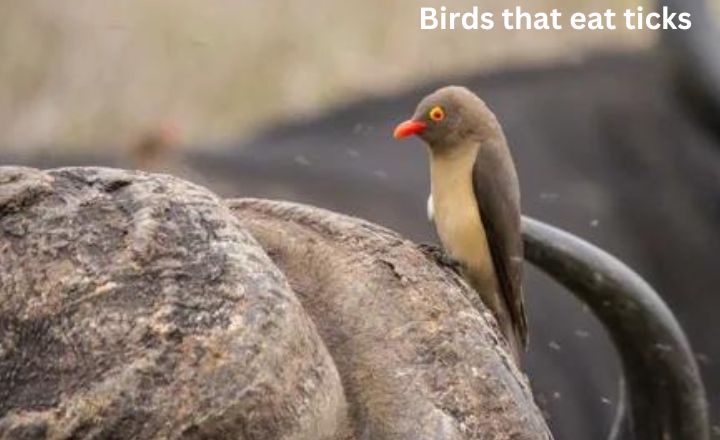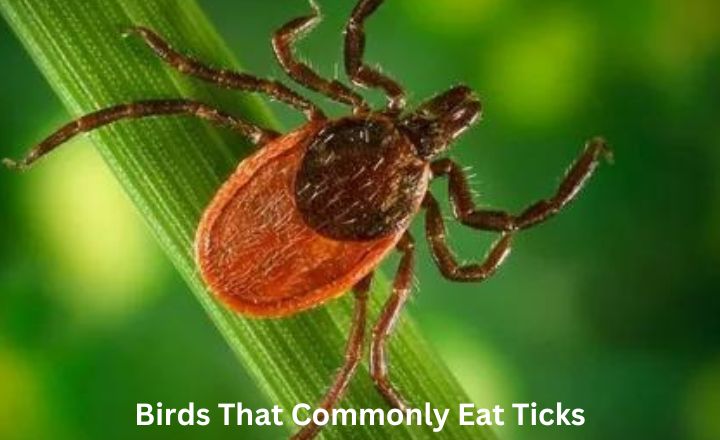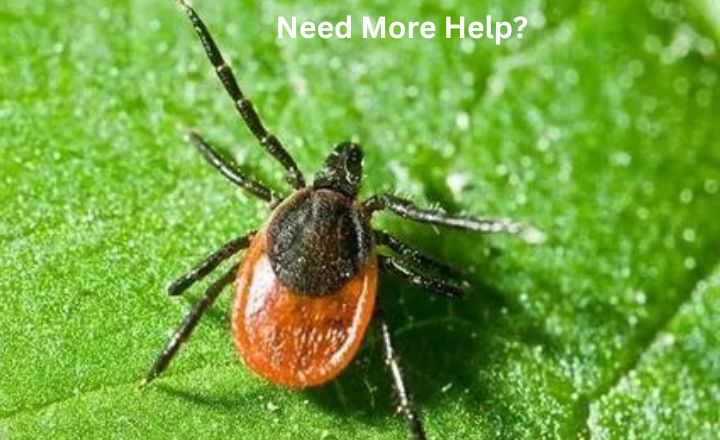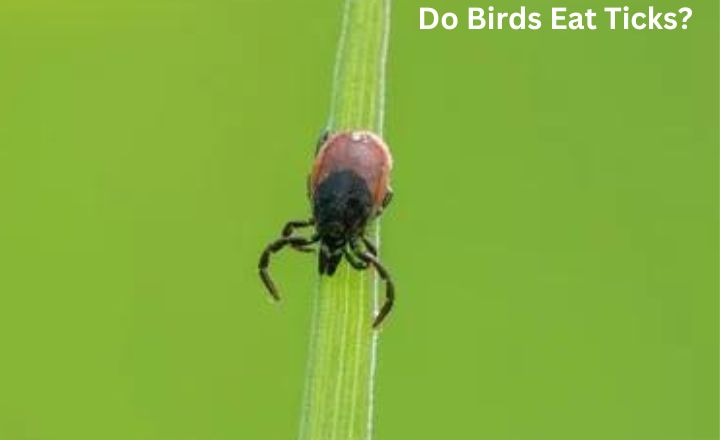Ticks are not only a nuisance to humans and animals alike but also carriers of various diseases. In the eternal dance between predators and prey, one might wonder: do birds play a role in controlling tick populations? Surprisingly, the answer is yes! Birds are not just graceful creatures that fill our skies with songs; they also serve as natural pest controllers, including ticks.
These feathered friends have adapted unique feeding behaviors that make them efficient tick hunters, contributing to the delicate balance of ecosystems worldwide.
Birds that eat ticks

Do Birds Eat Ticks? Birds such as guinea fowl, robins, and thrushes have been observed feasting on ticks in their natural habitats. Their keen eyesight and nimble beaks allow them to pick off these blood-sucking parasites from their feathers or directly from the ground.
Research has shown that certain bird species can consume significant quantities of ticks, helping to keep their numbers in check and reduce potential health risks for other wildlife and even humans.
One particular bird that stands out for its tick-eating habits is the Eastern Bluebird. This beautiful songbird not only adds color to our surroundings but also helps keep tick numbers in check by feeding on them. The most beautiful fluffy Shima Enaga bird possesses a round body cloaked in soft white feathers that almost resemble a cotton ball, get ready to learn bird tips.
Studies have found that birds like robins can consume large quantities of ticks daily, providing a natural form of pest control. By encouraging these tick predators in our environment, we can help reduce the risk of tick-borne diseases for both humans and animals.
Birds That Commonly Eat Ticks

- Birds play a crucial role in controlling tick populations by feeding on these tiny parasites. Species like guinea fowl, turkeys, and chickens are known to actively seek out and consume ticks as part of their diet. Their constant pecking behaviour not only helps reduce the tick population but also prevents the spread of tick-borne diseases.
- Do Birds Eat Ticks? Wild birds such as songbirds, robins, and wrens are also important tick consumers. These small birds may inadvertently ingest ticks while foraging for insects or other food sources, and their consumption contributes significantly to keeping the tick population in check naturally.
- While it’s clear that many bird species do eat ticks as part of their regular diet, it’s worth noting that not all birds show a preference for these parasitic insects. Factors like habitat, availability of other food sources, and individual bird preferences can influence whether a particular species will actively seek out ticks as prey or not. The overall impact of birds on controlling tick populations remains substantial in various ecosystems.
Some Name That I Know About Birds That Eat Tcks Are Given In The List Below:
- Guinea Fowl: When it comes to the age-old question of whether birds eat ticks, guinea fowl stand out as natural tick predators. Despite not being native to North America, these peculiar birds have found their niche in rural and farm environments, where they play a crucial role in controlling tick populations. Their insatiable appetite for these tiny bloodsuckers makes them valuable allies in the battle against tick-borne diseases.
- Wild Turkeys: Do Birds Eat Ticks? Wild turkeys, known for their impressive size and striking appearance, play a crucial role in controlling tick populations. These majestic birds are not just a spectacular sight to behold; they are also efficient tick hunters. As they roam the forest floors in search of food, wild turkeys actively browse for insects and arachnids, including ticks, making them natural allies in combating tick-borne diseases.
- Chickens: Chickens, known for their omnivorous diet, are effective tick predators when allowed to forage freely outdoors. A study conducted by the University of California found that chickens fed a diet supplemented with ticks reduced tick numbers significantly in an area. The natural behavior of scratching and pecking allows chickens to consume ticks, contributing to pest control in the environment.
- Robins and Thrushes: Robins and thrushes, those familiar backyard birds we often take for granted, play an essential role in controlling tick populations. While foraging on the ground for food, these birds deftly pick off ticks with precision, acting as natural pest control agents in our outdoor spaces. Their keen eyesight and agile movements make them effective hunters of these tiny parasites.
- Wrens: These small and agile birds, known as wrens, play a crucial role in controlling insect populations, including the pesky ticks that can pose a danger to other wildlife and even humans. As they meticulously search through leaf litter and underbrush for their next meal, wrens inadvertently contribute to the reduction of tick populations, helping to maintain a balanced ecosystem. Their keen hunting skills and quick movements allow them to efficiently track down insects while also encountering and consuming ticks along the way.
- Woodpeckers: Woodpeckers, known for their distinct drumming sound on tree trunks, play a crucial role in controlling insect populations. Aside from feeding on tree-dwelling insects like beetles and ants, woodpeckers have been observed consuming ticks they come across while foraging. This behavior reveals the adaptability and opportunistic nature of these fascinating birds, showcasing their ability to diversify their diet based on environmental cues.
Encouraging Birds to Control Ticks
Do birds eat ticks? The answer is a resounding yes. Birds, particularly species like chickens, robins, and sparrows, are natural predators of ticks. Encouraging birds to control ticks in our environment can be a natural and effective way to reduce the spread of tick-borne diseases.
Many bird species, such as swallows, wrens, and chickadees, are known to feed on ticks as part of their diet. By creating bird-friendly habitats with diverse vegetation and providing nesting boxes or bird feeders, we can attract these beneficial birds to our yards.
Birds not only help control tick populations but also add beauty and vibrancy to our surroundings. Watching birds actively foraging for insects can be a fascinating and educational experience for both children and adults alike. Additionally, supporting bird populations through conservation efforts can have far-reaching benefits beyond just tick control, contributing to overall ecosystem health and biodiversity.
By recognizing the valuable role that birds play in maintaining a balanced ecosystem, we can create a harmonious environment that benefits both wildlife and humans alike.
Do robins eat ticks
Robins are known for their appetite for various insects, and ticks are no exception. These small birds play a crucial role in controlling tick populations by consuming them as part of their diet. Studies have shown that robins can eat significant numbers of ticks during the peak tick season, helping to reduce the spread of diseases like Lyme disease.
Robins may not actively seek out ticks but will consume them when they come across them while foraging for other food sources. This unintentional consumption of ticks by robins highlights the complex web of interactions between different species in an ecosystem.
By playing a role in the natural control of tick populations, robins contribute to maintaining a balance that benefits both wildlife and humans alike. , I have researched about bird foods. Which bird do you most like? I write a blog, Do Birds Eat Butterflies?
Need More Help?

If you find yourself constantly battling with tick infestations in your yard, perhaps you should consider recruiting some feathered friends to help out. Yes, birds do eat ticks! Birds like chickens, guinea fowl, and robins are known to consume large quantities of ticks, helping to keep their populations in check naturally.
For those struggling with tick problems in their gardens or properties, attracting tick-eating birds can be a beneficial and eco-friendly solution. By providing suitable habitats such as bird feeders and nesting spaces, you can encourage these natural pest controllers to frequent your area and help reduce the tick population significantly.
Summary
The question of whether birds eat ticks is an important one with significant implications for public health and wildlife management. Research suggests that many bird species do consume ticks as part of their diet, playing a valuable role in controlling tick populations. By encouraging bird-friendly habitats and supporting conservation efforts, we can enhance the natural tick-control services provided by birds. As we continue to study the interactions between birds and ticks, it becomes increasingly clear that these feathered friends are valuable allies in our efforts to reduce the risks associated with tick-borne diseases. Let’s appreciate and protect these avian helpers for a healthier ecosystem and a safer environment for all.
Cento Magazine ensures an enriching reading experience for everyone. Enjoy quality content that is both informative and entertaining. Keep exploring, stay informed, and let Cento Magazine be your go-to source for knowledge and inspiration. Thank you for being part of our community.
FAQs:
What bird eats the most ticks?
The Guinea fowl is known to be a great consumer of ticks.
What birds eat ticks in the UK?
Robins, blackbirds, and thrushes are known to eat ticks.
What smell do ticks hate?
Ticks hate the smell of certain essential oils such as eucalyptus, lavender, and peppermint.
Can Vaseline remove a tick?
Yes, applying Vaseline to a tick may cause it to suffocate and detach from the skin.


